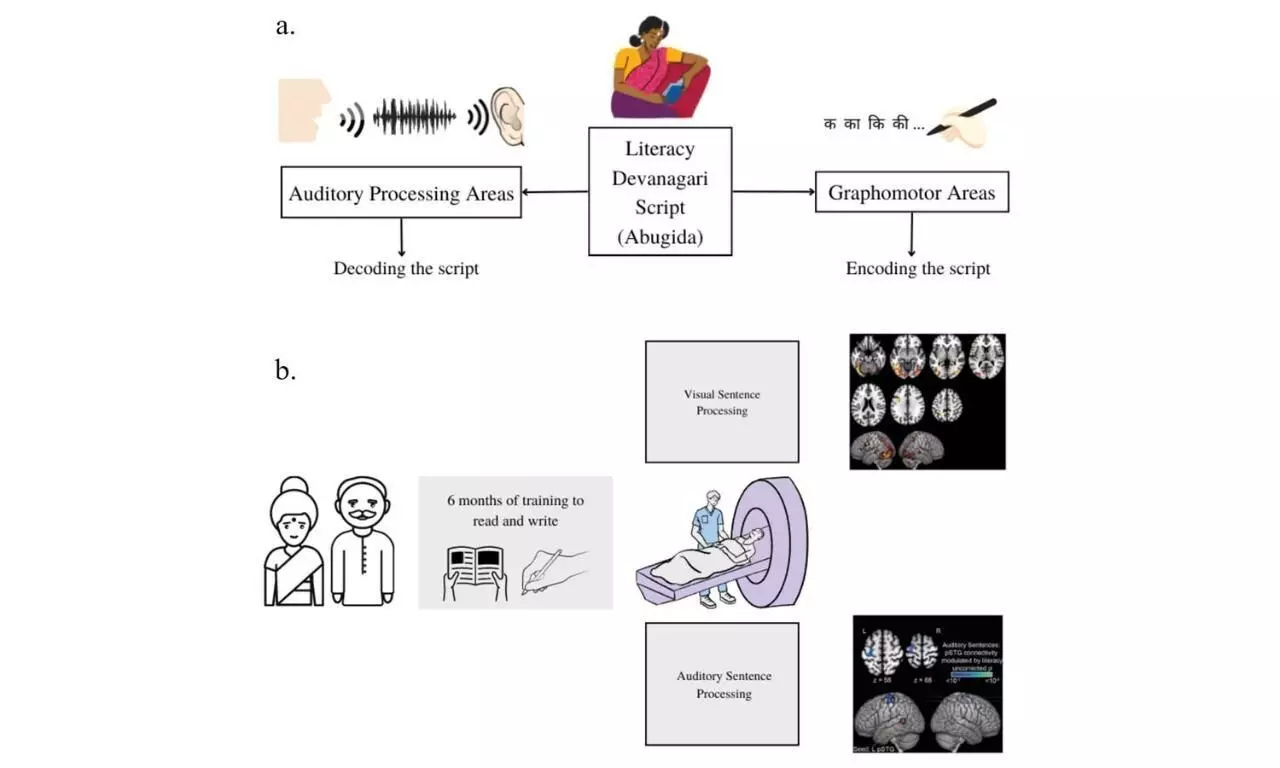Scripts of Indian languages influence brain more than English alphabets: Study
Scripts of Indian languages seem to influence adult brains more than English alphabets, according to a study

HYDERABAD: Scripts of Indian languages seem to influence adult brains more than English alphabets, according to a study.
The most important finding of this study is that Indian scripts, specifically Devanagari, cast influence on brain networks relevant to speech and attention differently, as compared to alphabetic scripts like English.
A research paper titled "How does literacy affect speech processing? Not by enhancing cortical responses to speech, but by promoting connectivity of acoustic-phonetic and graphomotor cortices" by Prof. Ramesh Mishra, Head of Centre for Neural and Cognitive Sciences, University of Hyderabad and others, has been published in Journal of Neuroscience.
These findings also indicate that literacy enhanced functional connectivity between auditory processing areas and graphomotor areas in the brain.
During the research, 91 Hindi-speaking participants with varying literacy levels participated in a Functional magnetic resonance imaging (fMRI) study, where 22 illiterate participants were trained to read and write Hindi over 6 months. They later participated in visual and auditory sentence-processing tasks.
Contrary to existing evidence that highlights the role of literacy in modifying how an individual processes speech; the results suggested that such an impact of literacy cannot be generalized across different scripts.
The study also implied significant coupling between hand-motor regions (writing) and auditory processing areas while the participants processed sentences. Thus, the potential role of writing cannot be ignored while we explore the role of literacy in speech processing.



